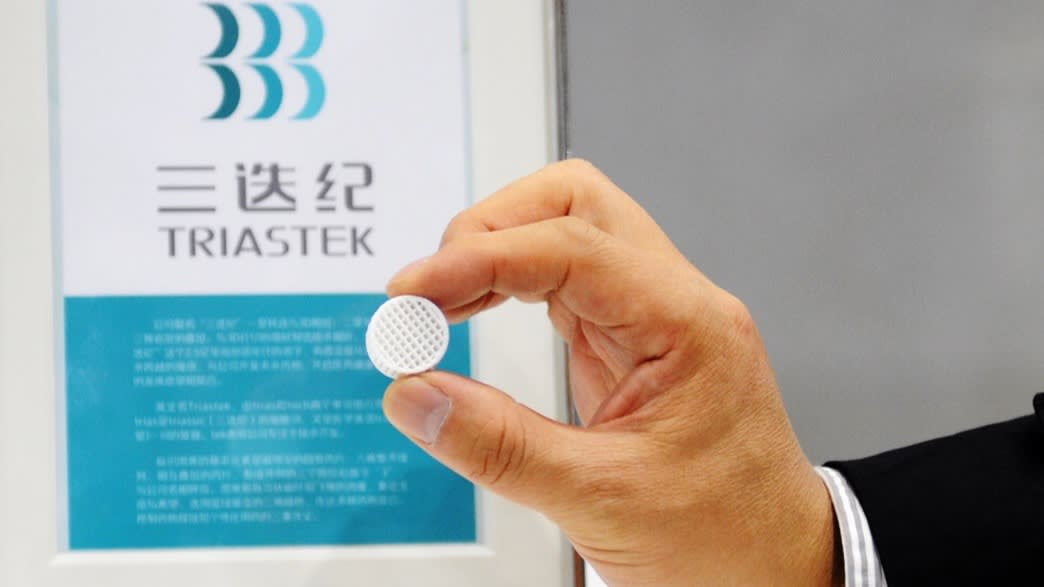Newsletter Signup - Under Article / In Page
"*" indicates required fields
A new research collaboration between Triastek, Inc. and Eli Lilly and Company will leverage 3D printing technology to achieve precise targeting and programmed drug release in the intestine.
The China-based Triastek has developed proprietary 3D printing technology that provides solutions for drug development. According to the agreement, Triastek and Lilly will focus on improving the bioavailability of drugs in the intestine.
Triastek will first conduct in-depth studies of the excipient – inert ingredients added to a drug product for specific functional roles — to ensure drug stability is maintained during development and 3D printing. Then, Triastek will identify the optimum 3D structure design for achieving targeted and programmed drug release.
Senping Cheng, founder and CEO of Triastek, said, “The collaboration between Triastek and Lilly is a great example of applying MED technology for improving the oral delivery of drugs. We envision that the MED technology of Triastek can be used to solve the challenges in formulations leading to the development of clinically valuable products for our global partners.”
MED 3D printing platform
The MED 3D printing platform uses automated intelligent manufacturing and digital design to construct tablets with sophisticated shapes and internal geometric structures. This customizable design allows control over drug onset time, duration and mode of delivery as well as how the drug interacts with the body. By optimizing these parameters, the MED platform can produce drugs with enhanced therapeutic effects and fewer side effects.
In 2020, the MED platform was accepted into the FDA’s Emerging Technology Program. This program aims to streamline the adoption of innovative manufacturing approaches by discussing and resolving potential technical and regulatory issues before a company files regulatory submissions, in an effort to avoid delays.
IND clearance from the FDA
Triastek has already received two investigational drug (IND) clearances from the U.S. Food and Drug Administration for its 3D printed drugs, T19 and T20.
T19 is a chronotherapeutic drug for the treatment of rheumatoid arthritis (RA). Chronotherapy involves purposefully timing drug administration or treatment to synchronize with the circadian rhythms of a condition’s symptoms. For instance, pain and joint stiffness are often worse in the morning for patients with RA. So when T19 is taken at bedtime, the drug release is delayed and its concentration in the blood peaks during the early morning hours.
T20 was developed as an alternative to the currently marketed drug for the treatment of cardiovascular and clotting disorders, which is taken twice daily. Instead, T20 is provided once, relying on its programmed drug release profile. This can help patients stick to their medication plan as they only need to remember to take one dose per day. Now that it’s been granted permission by the FDA, Triastek is set to begin clinical studies of T20.






